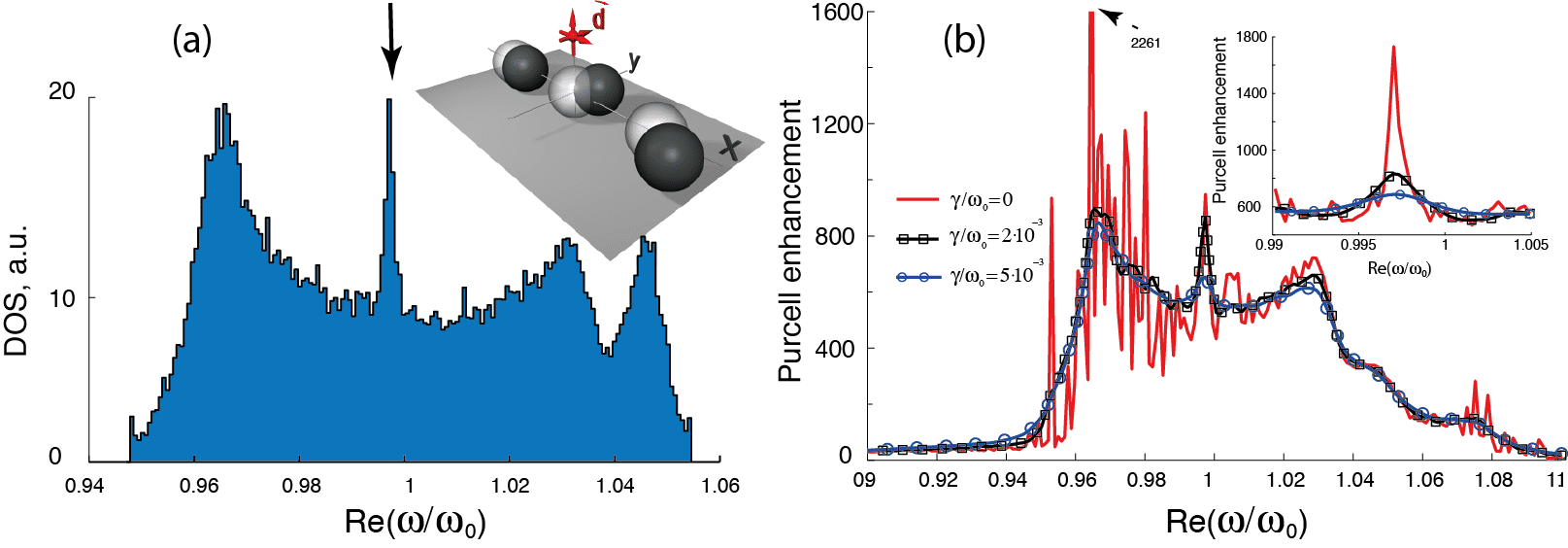
Purcell Enhancement in Disordered Nanoparticle Chains
We report on numerical study of resonant nanoparticle chains with positional disorder (see fig. 1 (a) inset). We have shown that the density of resonant states (DOS) demonstrates a peak near the frequency of individual nanoparticle resonance. This peak is referred to Dyson singularity in one-dimensional disordered structures [F. Dyson, Phys. Rev. 6, 1331, 1953] known in some solid-state systems. Our calculation show that this peak survives (see fig.1 (a)) in the case of long-range retarded dipole-dipole interaction that is important for plasmonics and photonics. The predicted Dyson peak in the local DOS allows obtaining disorder-induced Purcell enhancement in disordered chains (see fig.1 (b)). We stress that this implies not only to plasmonic nanoparticles but also to an arbitrary dipole resonant chains. The enhancement intensity is stronger for stronger positional disorder. The predicted Purcell enhancement can be found its applications in random lasers and for SERS spectroscopy in one-dimensional structure. In the view of fundamental physics the obtained results open a way for direct observation of Dyson peak that has not been done before.

Fig. 1. (a) DOS of periodic nanoparticle chain with positional disorder (shown in the inset). Maximal amplitude of the positional shift equals to 15% of inter particle distance. (b) Purcell enhancement calculated for a dipole source placed above the chain as shown in the Fig. 1. (a) inset for different values of losses in nanoparticles.
Powered by Eventact EMS